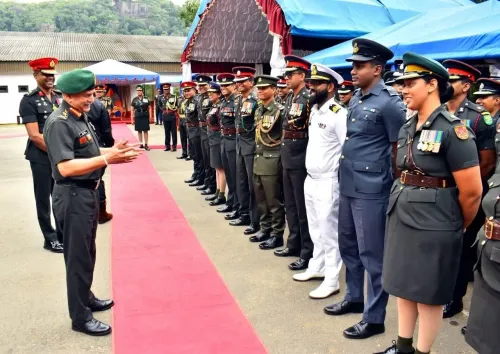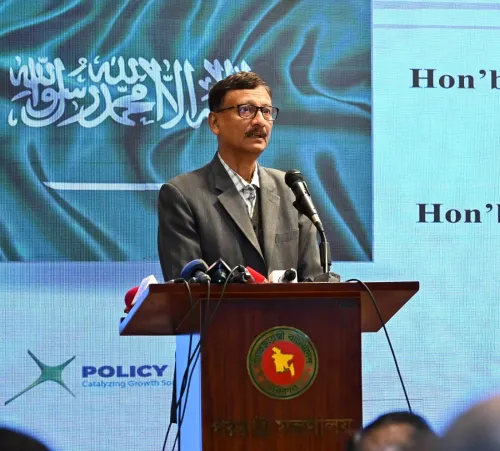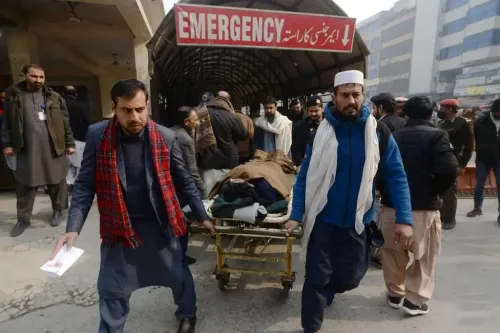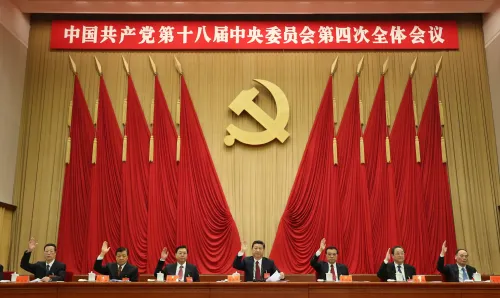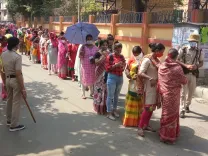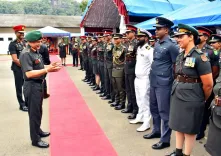Does Thailand's Planned Military Action Breach the Ceasefire?
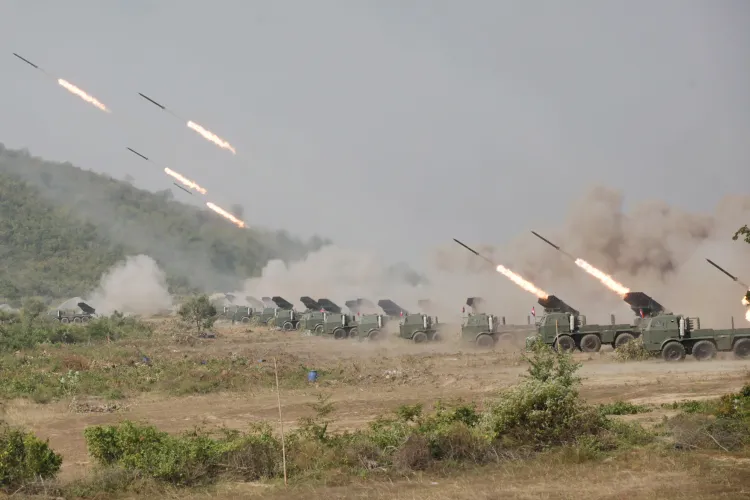
Synopsis
Key Takeaways
- Cambodia condemns Thailand's military plans as a ceasefire violation.
- Both nations agreed to halt troop movements per the GBC meeting.
- Accusations of landmine usage have been strongly denied by Cambodia.
- Diplomacy is crucial to prevent escalation and ensure peace.
- Unverified claims can damage bilateral trust and cooperation.
Phnom Penh, Aug 11 (NationPress) A spokesperson for the Cambodian defense ministry declared on Monday that the proposed military operation articulated by Lt. Gen. Boonsin Padklang, who leads Thailand's 2nd Army Region, constitutes a breach of the ceasefire agreement established by both nations.
Reportedly, Boonsin declared on Sunday the intention to take control of the Ta Krobey temple and to shut down the Ta Moan Thom temple.
Lt. Gen. Maly Socheata, Undersecretary of State and spokesperson for the Cambodian Defence Ministry stated, "This announcement serves as undeniable proof of a provocative and premeditated intent to invade Cambodia's sovereignty and territorial integrity," as reported by Xinhua News Agency.
This proposed action is considered a violation of the ceasefire agreement that was established during the special meeting on July 28, as well as the principles agreed upon during the extraordinary meeting of the General Border Committee (GBC) held on August 7 in Malaysia, she continued.
Socheata noted that during the extraordinary GBC meeting, both Cambodia and Thailand agreed to refrain from moving their military forces, including avoiding patrols beyond their current positions.
"Cambodia firmly advocates for a peaceful resolution, adhering to the principle of peace and strictly upholding the ceasefire agreement," she asserted. "Cambodia anticipates that Thailand will also sincerely uphold this principle to resolve the border conflict and restore peace for the citizens of both nations."
Last week, the Thai Army reported that three Thai soldiers suffered injuries from a landmine explosion during a patrol along the Thai-Cambodian border. Nevertheless, Cambodia categorically denied these accusations from Thailand.
According to Thailand's Second Army Region, the explosion took place around 10:00 AM local time on Saturday, while Thai troops were patrolling and reinforcing border security by laying barbed wire in Sisaket Province.
Thai army spokesperson Winthai Suvaree indicated that the incident clearly illustrates the continued, covert utilization of weapons by the Cambodian side along the border, which violates the Anti-Personnel Mine Ban Convention, also known as the Ottawa Convention.
"Such actions significantly hinder the implementation of ceasefire measures and obstruct peaceful conflict resolution, reinforcing the narrative that Cambodia has consistently initiated weapon use first,"
Winthai stated in a press release.
On Saturday evening, the Cambodian Mine Action and Victim Assistance Authority (CMAA) strongly refuted the Thai claims that Cambodia has laid new mines resulting in injuries to three Thai soldiers.
"Cambodia's stance is clear: We have not, and will not, deploy new landmines," stated the CMAA in a press release.
"Currently, no official and transparent investigation has been conducted regarding the reported incident involving the injured Thai soldiers," the press release indicated.
"In the absence of verified details, it is crucial for all parties to practice restraint in their public statements. Unfounded accusations not only threaten the spirit of cooperation established by the ceasefire but also jeopardize trust at a critical moment when constructive engagement is essential," it concluded.


